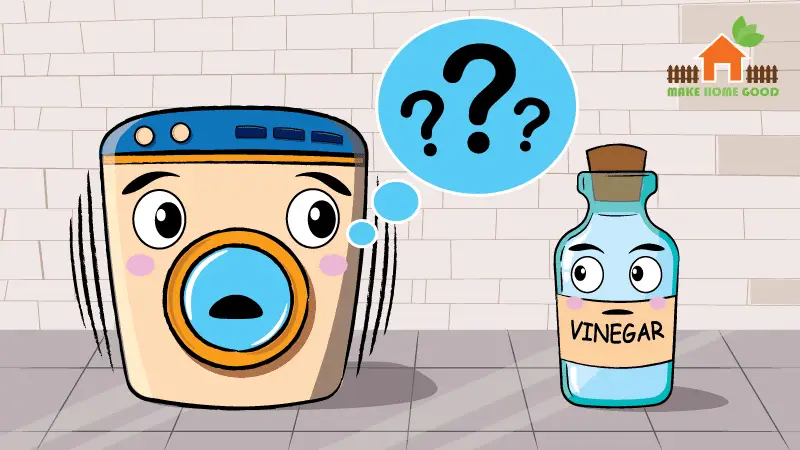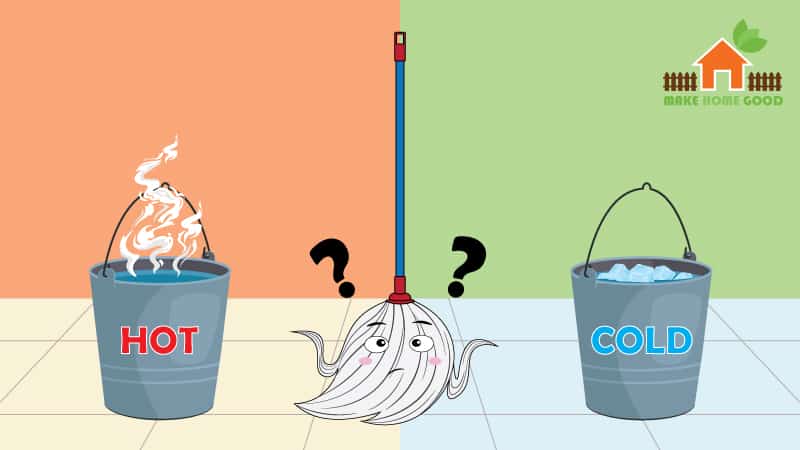Vinegar is a versatile substance that may be used in many ways, including as a non-toxic cleaner. Vinegar can be a reliable and safe cleaner for your washing machine if used properly.
However, if you use too much vinegar, it could damage your washing machine. Choose a mild vinegar like white vinegar if you want to wash your washing machine with vinegar.
Vinegar that solidifies, such as apple cider vinegar and balsamic vinegar, is harmful to the internal workings of your device and should be avoided. Also, make sure to dilute the vinegar with water before usage.
While washing with vinegar, avoid touch with your machine’s electronic systems. Due to its acidic nature, vinegar can eat away at metals found in electronics.
Avoid letting the vinegar sit on any electrical parts; wash them thoroughly with water as soon as possible if they come into touch with vinegar. Cleaning your washing machine with vinegar is an effective and safe option; use it correctly.
Table of contents
- Which type of vinegar works best in washers?
- How to use white vinegar in the washer?
- Can vinegar ruin a front-loading washer?
- How to utilize vinegar in front-loading machines?
- How much white vinegar should I use to clean my washer?
- Is White Vinegar identical to Distilled Vinegar?
- Is vinegar harmful to clothing?
Which type of vinegar works best in washers?
The most excellent option for regular white vinegar is distilled white vinegar since it has a lesser acetic acid content and is less harsh than regular white vinegar.
Additionally, purified white vinegar is milder than regular white vinegar. In addition, it is pretty lenient and, if used sparingly, will not ruin your washing machine or your clothing.
How to use white vinegar in the washer?
First, open the detergent compartment of your washing machine and pour in one cup of white vinegar that has been distilled.
Vinegar can be added to the top-loading as well as the front-loading devices. The next step is to set your appliance to the hottest water setting so that any built-up residue may be more easily removed.
Add 1 cup of baking soda to the mixture to increase the cleaner’s effectiveness. After the cycle has finished, give your clothes one final thorough rinsing to remove any trace of vinegar that may still be present. Dry your laundry by hanging it up or by drying it in the dryer on the lowest setting.
Can vinegar ruin a front-loading washer?
Vinegar is not likely to cause any problems for a front-loading washer. Vinegar is an alkaline substance. Thus, it may be used for most cleaning tasks around the house without risk.
Vinegar has several uses but must be used sparingly and always rinsed away to prevent buildup. If you’re worried about causing damage to your washing machine, try a small test area first to be sure there won’t be any problems.
Over time, using vinegar in your washer will burn the rubber gaskets and hoses, causing leaks. Vinegar can corrode any washing machine if used excessively. Still, you can use it; save it for emergencies.
How to utilize vinegar in front-loading machines?
Vinegar can be used in place of fabric softener in front-loading washing machines if equipped with a rinse aid dispenser. When added to the fabric softener chamber of a washing machine, white vinegar can assist in the removal of tenacious stains and dirt, and it can also assist in the maintenance of a soft feel for the garments.
To start cleaning your front-loading washing machine with vinegar, pour one cup of purified vinegar into the drawer that holds the detergent.
This will get you started. In the end, if you want to eliminate the smell of vinegar, run a normal cycle with hot water.
Mixing the vinegar with a 1/2 cup of baking soda gives you much more scouring power than using either ingredient alone. To finish, wet a cloth and wipe down the washer’s interior to remove any residue that may still be there.
How much white vinegar should I use to clean my washer?
Simply putting 2 cups of white vinegar into the detergents dispenser of a giant washing machine is all required to clean the appliance. For a typical-sized washer, you should only need one cup of detergent. Because you do not want to destroy your washing machine, it is essential to correct the ratio.
Because it contains a high percentage of acetic acid, regular use of ordinary vinegar can harm a washing machine; therefore, you should exercise caution if you choose to use it. There are a few key distinctions between conventional white vinegar and distilled vinegar, the most notable being the amount of acetic acid.
Is White Vinegar identical to Distilled Vinegar?
White vinegar, produced by fermenting sugar cane, possesses a flavor that is more powerful than that of distilled vinegar. White vinegar often has a greater concentration of acetic acid, ranging anywhere from 15% to 18%.
In contrast, white vinegar can be used to make distilled white vinegar. White vinegar that has been distilled undergoes a process that reduces the amount of acetic acid it contains to between 5 and 10 percent, making it much less acidic than conventional white vinegar. There are no strict rules in place. Thus, the level of acetic acid is just considered to be an average value.
Is vinegar harmful to clothing?
There are two main components to vinegar: water and acid. The multitasking abilities of this liquid allow it to be used in the kitchen, as a hair rinse, and for other household chores. Vinegar can be a helpful cleaning agent, but it can cause harm to the fabric if mishandled. One way or another, vinegar can ruin your wardrobe. Vinegar may eat away at cloth if left on them for too long. Fabrics as fragile as silk are particularly vulnerable to this. Colors may also run or fade when exposed to vinegar. Therefore, before using vinegar to remove a stain, you should try it on an isolated spot.
If you spill vinegar on your clothes, you can try to save them by giving them a quick rinse in cold water. Soaking the clothing in a water-vinegar solution and vinegar is another option for reducing the vinegar’s harshness. If the damage is too extensive, you may have to give up your favorite top or dress.







